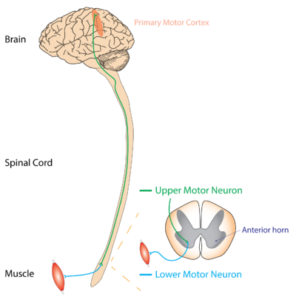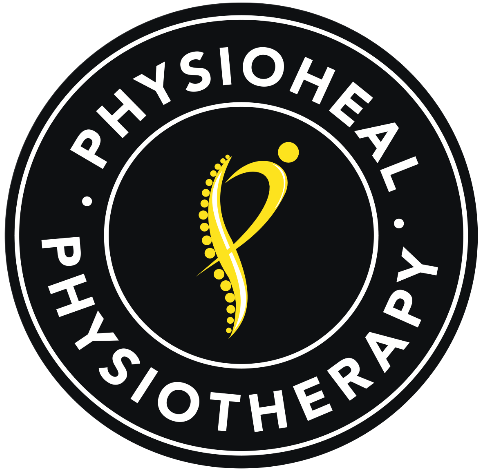We Are Open For Motor Neurone Disease Treatment in Gurgaon!
Fill the form and let us call you back.
[gravityform id="3" title="false" description="false"]
Comprehensive Guide to Motor Neurone Disease (MND): Causes, Symptoms, Diagnosis, and Treatment
Welcome to Physioheal Physiotherapy’s comprehensive guide to Motor Neurone Disease (MND). As a leading resource for physiotherapy and healthcare, we are committed to providing you with in-depth insights into MND, its various subtypes, risk factors, symptoms, diagnostic procedures, and effective treatment options. Our aim is to empower you with knowledge that can help you or your loved ones navigate the challenges posed by this complex condition.

Understanding Motor Neurone Disease (MND)
Motor Neurone Disease, commonly referred to as MND, is an umbrella term encompassing a group of disorders characterized by the degeneration and eventual death of motor neurones. These critical nerve cells are responsible for transmitting signals from the brain to the muscles, enabling movement and functionality. MND falls under the category of neurodegenerative disorders, where these essential nerve cells deteriorate, leading to a gradual loss of motor function.
Exploring MND Subtypes
MNDs can manifest in various forms, each with its unique characteristics and effects on the body’s motor functions. Some of the notable subtypes of MND include:
- Amyotrophic Lateral Sclerosis (ALS): ALS is the most prevalent subtype of MND, affecting both upper and lower motor neurons. It presents with a range of symptoms that can impact limbs, facial muscles, and even the ability to speak and swallow.
- Primary Lateral Sclerosis (PLS): This subtype primarily targets the upper motor neurons, leading to muscle stiffness, spasticity, and difficulties with movement coordination.
- Progressive Muscular Atrophy (PMA): PMA selectively affects the lower motor neurons within the spinal cord, resulting in muscle weakness, atrophy, and challenges in executing fine motor tasks.
- Progressive Bulbar Palsy (PBP): PBP primarily involves the lower motor neurons of the brainstem, leading to difficulties in speech, swallowing, and overall facial muscle control.
- Kennedy’s Disease: Also known as progressive spinobulbar muscular atrophy, this rare genetic disorder primarily affects males and leads to muscle weakness and wasting.
- Post-Polio Syndrome (PPS): A condition that can emerge years after a polio infection, resulting in muscle weakness and fatigue.
- Spinal Muscular Atrophy (SMA): SMA is a hereditary condition that specifically impacts lower motor neurons, leading to muscle weakness and challenges with movement.
Unveiling Risk Factors and Early Symptoms
Several factors contribute to the risk of developing MND, including genetics, age, and gender. While the precise causes are often unknown, certain genetic mutations and environmental exposures may play a role. Early symptoms of MND can vary, but they commonly include stumbling due to leg muscle weakness, difficulty gripping objects due to hand muscle weakness, slurred speech or swallowing difficulties caused by weakened throat muscles, and muscle twitching.
Early symptoms may be mild and include:
- Stumbling due to weakness of the leg muscles
- Difficulty holding objects caused by weakness of the hand muscles
- Slurring of speech or swallowing difficulties due to weakness of the tongue and throat muscles
- Cramps and muscle twitching
As the disease progresses symptoms may include:
- Breathing difficulties from decreased lung capacity caused by muscle weakness
- Fatigue caused by muscle exhaustion, decreased lung capacity, metabolic changes, weight loss, and reduced food intake
- Insomnia caused by discomfort, pain from stiff joints and muscles, excessive saliva, dry mouth or breathing problems
- Mild changes in cognitive skills and processes and/or behavioral change
- Fronto-temporal cognitive changes (a type of dementia), which is prominent in 5-10% of MND cases
- Excessive laughing or crying due to damage to the upper motor neurones
- Some pain or discomfort
Navigating the Diagnosis and Management
Diagnosing MND requires a comprehensive approach due to the similarity of its early symptoms with other conditions. Neurologists use a series of tests to eliminate other conditions before making a definitive diagnosis of MND. Tests may include:
- Blood tests to look for a rise in a creatine kinase, which is produced when muscle breaks down.
- Nerve conduction studies (NCS), which involve taping electrodes over nerves and recording muscle activity when nerves are stimulated by electrical impulses.
- Electromyography (EMG) to measure their electrical activity of muscles
- Magnetic Resonance Imagery (MRI) scans, take images of the internal structures of the body and can show up damaged areas. An MRI scan will not diagnose Motor Neurone Disease, as the damage caused by this disease does not show up on this scan. However, it may be used to eliminate other conditions that can mimic symptoms of MND.
Although a cure for MND remains elusive, various approaches can improve the quality of life for individuals with MND. Multidisciplinary clinics, which bring together specialists from neurology, physical therapy, respiratory therapy, and social work, play a pivotal role in offering comprehensive care.
Role of Physiotherapy in MND Management
Physiotherapy is a cornerstone of MND management, aiming to maintain mobility, alleviate discomfort, and enhance overall well-being. Our expert physiotherapist, Dr. Divya Gaur, specializes in crafting tailored treatment plans to address the unique needs of each individual.
- Muscle Function Maintenance: Our physiotherapy interventions focus on preserving muscle function and preventing contractures.
- Mobility Enhancement: Through targeted exercises, stretching routines, and posture correction, we strive to improve mobility and reduce spasticity.
- Assistive Devices and Techniques: We recommend and guide the use of assistive devices, braces, and techniques to enhance independence and mobility.
- Nutritional Guidance: Proper nutrition is crucial, and we provide dietary recommendations and, if necessary, assist with feeding tube insertion.
- Respiratory Support: Breathing exercises and techniques can aid in maintaining respiratory function.
- Palliative Care and Quality of Life: Our holistic approach includes palliative care strategies to ensure comfort, symptom management, and emotional well-being.
Expert Consultation and Support
As MND progresses, the person will need assistance with daily tasks. Physiotherapy treatment and the correct aids and equipment will help people with MND retain some independence and quality of life. If you are looking for Motor Neuron Disease treatment in Gurgaon then consult our best physiotherapist Dr. Divya Gaur. Our specialised physiotherapists at Physioheal Physiothrapy in Gurgaon will help identify the appropriate resources, aids, equipment and support. To book an appointment call +91-9999259307, book online or alternatively request a phone consultation.
